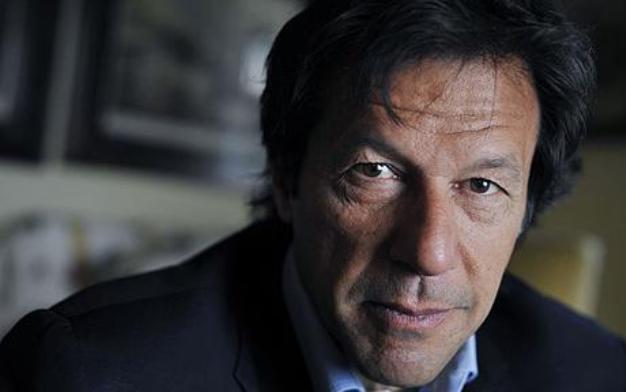This world-famous cricketer, whose remarkable test match career spanned two decades before he retired in 1992, is now a leading politician in Pakistan. Imran Khan has frequently made a strong impression with his trenchant criticisms of the existing political establishment, as well as with his outspoken remarks about the conduct of US policy in Afghanistan and Pakistan. He has been leader of the Pakistan Movement for Justice (Pakistan Tehreek-i-Insaf – PTI) since 1996.

Global: Did you feel in any way encouraged about the future of Indo-Pakistani relations when you saw the two leaders sitting down together to watch the recent World Cup semi-final cricket match between the two countries?
Imran Khan: In terms of detente and thawing of relations, the invitation to watch the Mohali semi-final can be termed a good opportunity for both Pakistan and India. Nonetheless, it was an opportunity which did not proceed beyond photocalls.
This is not to say that the attempt was futile. I think any dialogue is better than none. But if India and Pakistan are to follow the demands of globalisation, the need to address a deficit in trust should be prioritised over straining to constantly blame each other. Home to one-fifth of the world’s population, South Asia can only find sustainable peace if the Kashmir issue is resolved according to the will of the Kashmiri people living on both side of the Indo-Pakistani border. Kashmir needs a political not a military solution.
Your party, the PTI, claims to have an agenda of completely changing the political traditions in Pakistan. Is your message aimed primarily at the youth and, if so, do you think that this is the best way to appeal across all the different regions of the country?
Yes, the message is aimed at the youth. A recent survey conducted by the British Council in Pakistan indicated that 90 percent of youth want change in Pakistan. They no longer want to see the monarchical set up in the guise of democracy pushed forward by two parties controlling Pakistan, namely the Pakistan People’s Party (PPP) and the Pakistan Muslim League (PML-Nawaz). They want to change the system governed by political mafias run by those two parties. Pakistan Tehreek-i-Insaf is the only political party in Pakistan mobilising the disaffected youth of Pakistan.
Is there a positive mood for change in Pakistan that in any way resembles the popular calls for change in the Middle East, for example?
I think the change in Pakistan will be much bigger than in the Middle East. Pakistan is undergoing a socio-political metamorphosis where externally it is seen as a state struggling for survival, whereas internally it is progressing towards indigenised systems of existence.
Change in Pakistan began with the movement for the restoration of the Chief Justice in 2007, when people came out on streets protesting against General Pervez Musharraf’s unconstitutional act of removing the Chief Justice, Mohammad Iftikhar Chaudhry.
His restoration paved the way for a movement for change. Unfortunately, there was a simultaneous counter-revolution led by the PML(N) when Nawaz Sharif went back on his word and contested the general elections, instead of boycotting them, and went on to form a coalition with the Zardari-led PPP. A bigger revolution will unfold in the 2013 general elections when people will reject the powerful political cliques formed by the ruling coalition.
Pakistan now has an independent Supreme Court, which did not exist in the past, and the media has never been more powerful. It is responsible for demystifying politicians and their politics. I think there are many similarities between the situation in Pakistan and what is happening in the Middle East. Pakistan could very well be the next Egypt.
You have been accused of blaming the rise of terrorism in the country on the US invasion in Afghanistan while ignoring the long history of ethnic conflict and violence against minorities within the country. What do you say to this charge?
The two are unrelated. The nature of violence before 2004, when the Musharraf regime allowed the US to launch drone attacks on Pakistan’s tribal belt, and post-2004, is totally different. It is also important to distinguish between the people living in Pakistan’s tribal region and al-Qaeda. There is a tendency in the West to assume that everybody living in the tribal areas is harbouring terrorists.
That is not true. As far as the rise of terrorism is concerned, the US drone attacks on innocent people living in the tribal belt of Pakistan has fuelled terrorism instead of reducing it. The drone attacks have turned people against the Pakistan army, giving rise to a new phenomenon known as the ‘Pakistan Taliban’. I don’t think the West is aware of the statistics here and the magnitude of collateral damage. More than 35,000 people have died since Pakistan entered the US war on terror, and 90 percent of the dead are civilians.
Today, violence is out of control because it is in reaction to the violence generated by the US drone attacks.
Regarding minorities, PTI’s agenda is very clear. The Blasphemy Law, Section 295-C of the Pakistan Penal Code is a clause misused against minorities, which is against Islam and the constitution of Pakistan. Islam is a just religion and provides security and sanctity to minorities. Only a genuinely elected government can prevent laws from being misused.
Assuming that the US continues towards its goal of withdrawing from Afghanistan, how would you like to see Pakistan’s relations with the US evolve both in the meantime and thereafter?
The Pakistani-US relationship needs to be built on mutual respect for political and territorial sovereignty. At the moment there is extreme imbalance, with one playing the part of a neo-imperial power and the other its satellite. The US should stop patronising despots and dictators. Only a credible, non-US-sponsored government in Pakistan can extricate the US from Afghanistan. The present government is seen as no more than a US stooge.





